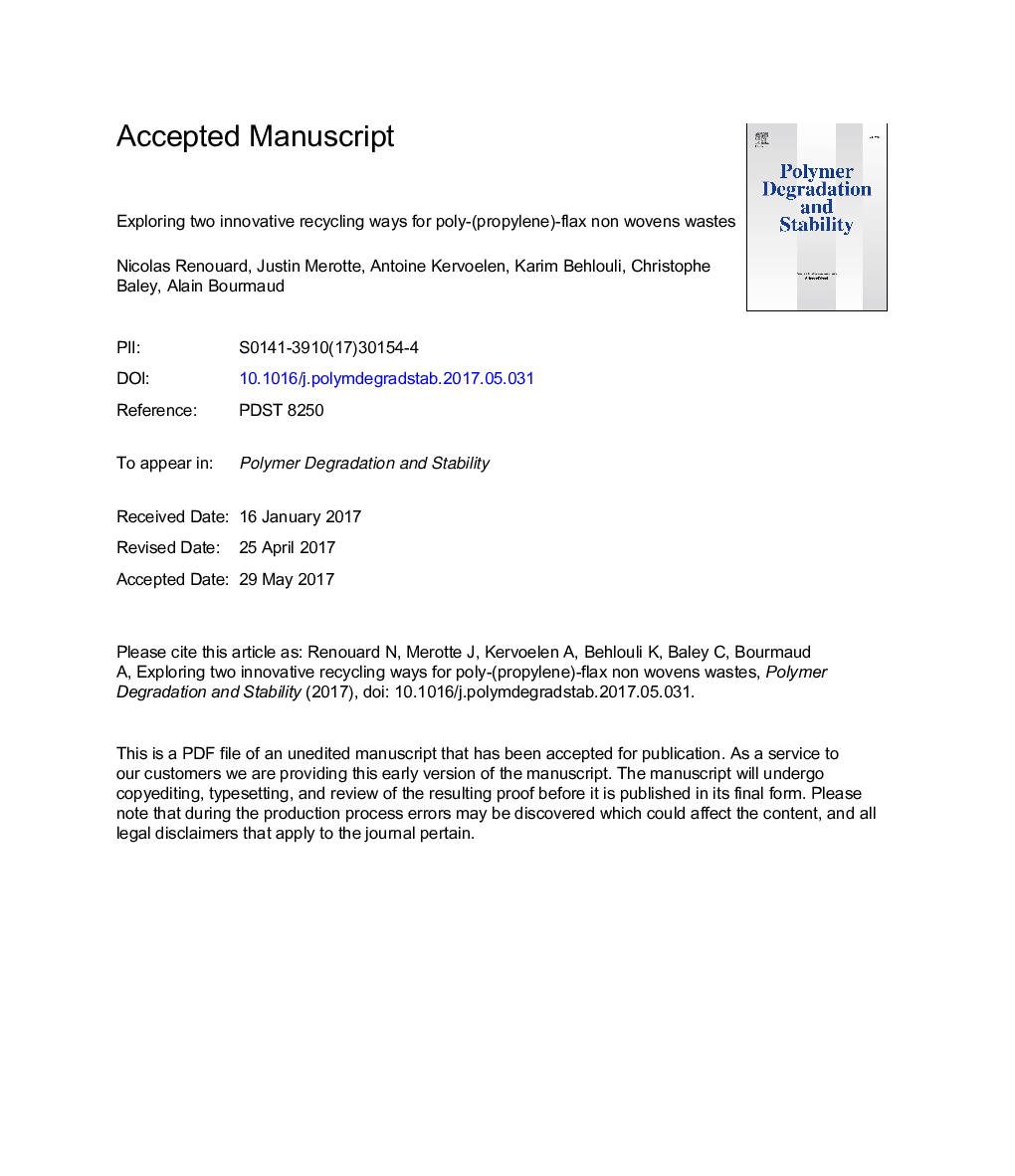| Article ID | Journal | Published Year | Pages | File Type |
|---|---|---|---|---|
| 5200654 | Polymer Degradation and Stability | 2017 | 39 Pages |
Abstract
Biocomposites have major advantage in term of weight saving thanks to lower densities compared to conventional materials; this property also allows a reduction of environmental impacts which is beneficial for the automotive industry. In addition, they maintain rather good mechanical properties after recycling cycles which makes possible to consider other end-of-life scenarios than incineration or landfill. In this work, we studied two potential routes for the recycling of moulding wastes from poly-(propylene)-flax nonwovens. By representing close to 25%-wt, these wastes are a major industrial problem, inducing additional recycling or treatment costs. In a first step, the parts were grinded and reincorporated at different weight fractions into virgin nonwovens. Up to 30%-wt of reincorporated wastes, results showed good mechanical performances for recycled nonwovens, especially in bending mode. In a second stage, scraps were grinded and then compounded for injection moulding applications. Their good rheological behavior and ability to conserve fibre lengths during extrusion made possible to formulate competitive materials in terms of tensile performances.
Related Topics
Physical Sciences and Engineering
Chemistry
Organic Chemistry
Authors
Nicolas Renouard, Justin Mérotte, Antoine Kervoëlen, Karim Behlouli, Christophe Baley, Alain Bourmaud,
